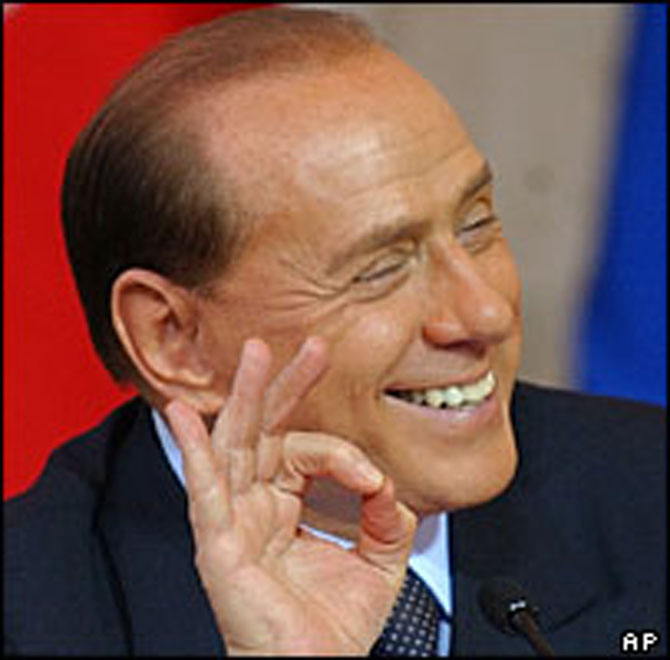Italian Prime Minister Silvio Berlusconi was expected to resign on Saturday, after parliament gave final approval to austerity measures demanded by the European Union, dpa reported.
The lower-house Chamber of Deputies approved the austerity measures by 380 votes for and 26 against. There were two abstentions.
Berlusconi was later expected to tender his resignation to President Giorgio Napolitano.
Berlusconi this week promised to resign once parliament's two chambers - the Senate and the Chamber of Deputies - approve the measures.
The measures - which include tax breaks to stimulate growth; the sale of state assets; raising the pension age to 67 by 2026; and greater labour market flexibility - were approved by the Senate on Friday.
Entering the Chamber of Deputies, possibly for the last time as premier, Berlusconi received a standing ovation from members of his conservative coalition who began chanting: "Silvio, Silvio!"
Earlier Saturday, Berlusconi held two hours of talks with former European Union commissioner Mario Monti, who is expected to be tasked by Napolitano with forming a new government.
The content of the talks has not been disclosed.
The ruling conservative coalition has split over whether to push for new elections or to support a unity government that includes the centre-left opposition.
Berlusconi, who favours a snap poll, was said to be in favour of Angelino Alfano, the secretary of his People of Freedom party, to become prime minister.
But opposition figures - including former prime minister and leading representative of the main opposition centre-left Democratic Party, Massimo D'Alema - are opposed to Alfano becoming prime minister because they see him as Berlusconi's hand-picked successor.
Such a government "would not be any stronger than the one led by Berlusconi," D'Alema said Saturday, adding that any new government should have solid credibility to calm the markets and satisfy the European Union.
Napolitano is in favour of appointing a new government, possibly led by former Monti, a move analysts say would be welcomed by financial markets, which reopen on Monday.
Before meeting Berlusconi, Monti on Saturday also held talks with European Central Bank president Mario Draghi, increasing media speculation in the Italian media that he will be named as new prime minister.
Markets reacted favourably to speculation of a Monti-led government on Friday. The benchmark 10-year yields on Italian government bonds fell 27 basis points to 6.7 per cent, below the peak 7 per cent on Wednesday.






